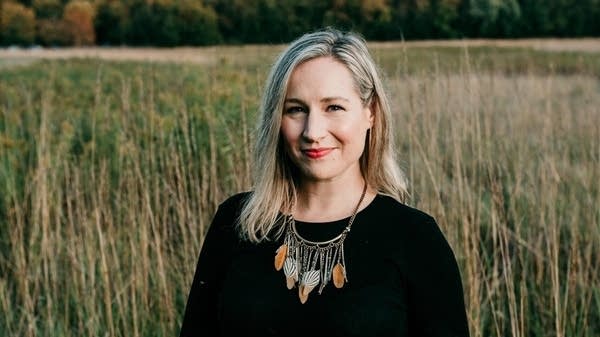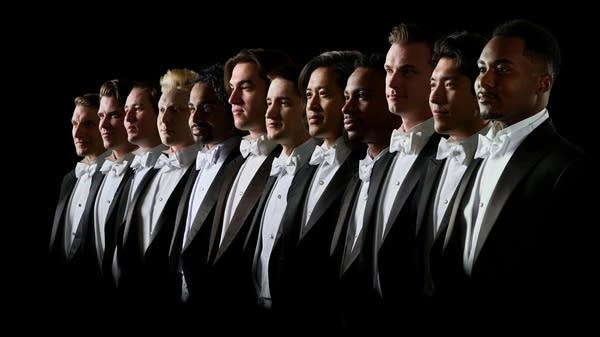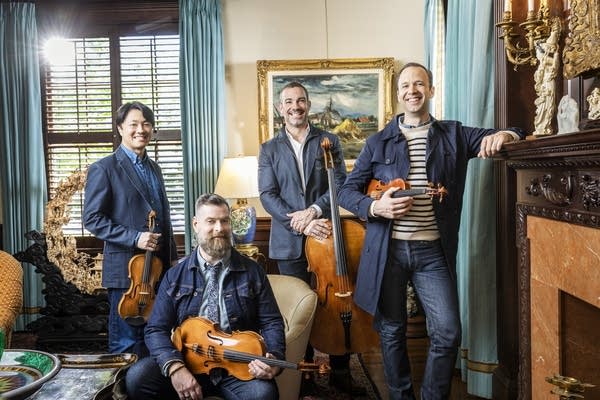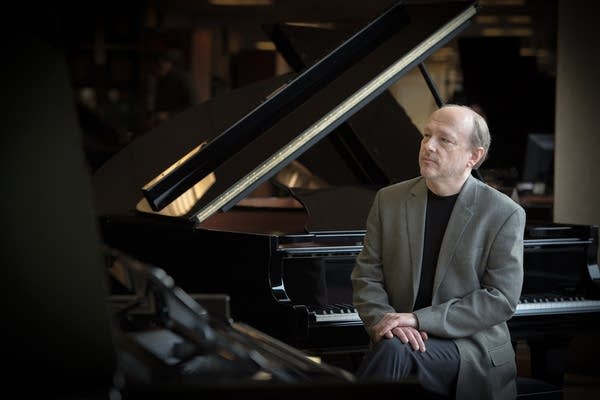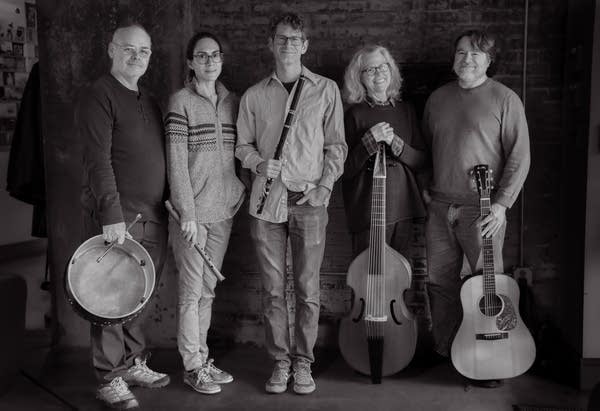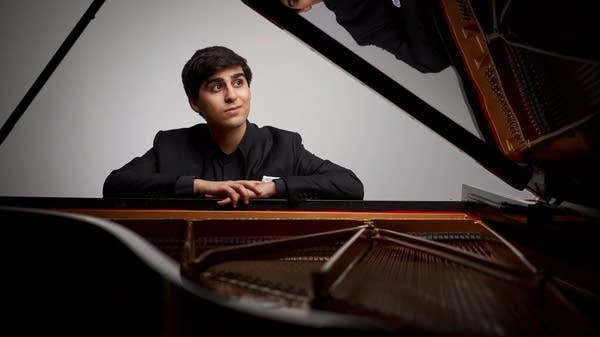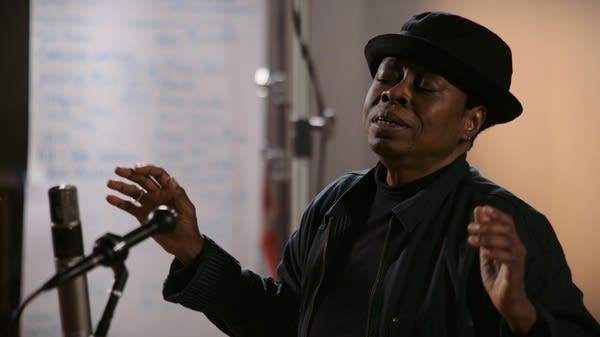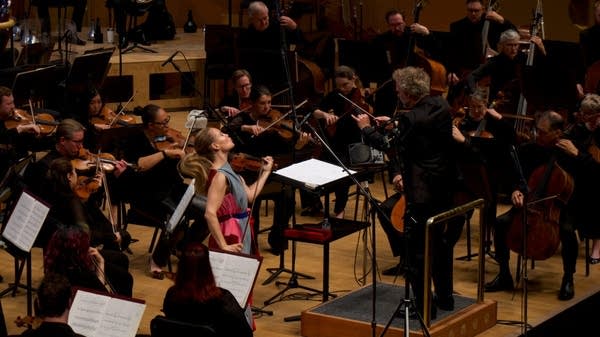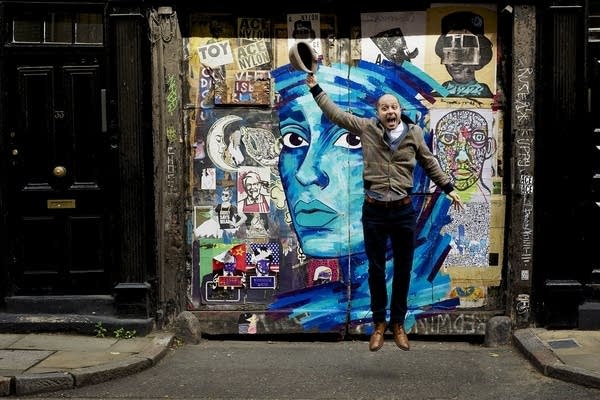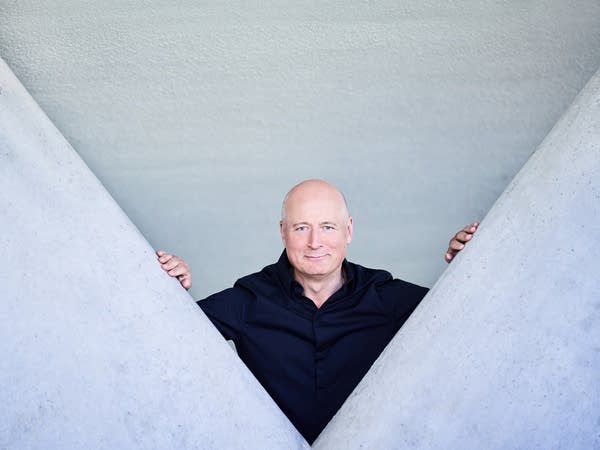Black Oak Ensemble — Silenced Voices (Cedille)
"I'm married to the violinist, Desirée Ruhstrat, and we have a black oak growing in our front yard here in Chicago. We just like this idea of this image of a tree."
That's how cellist David Cunliffe and his wife, violinist Desirée Ruhstrat, came up with the idea for the Black Oak Ensemble. This string trio, which is the core of this ensemble, is rounded out with violist Aurélian Fort Pederzoli.
I talked with David and Aurélian recently about their first recording, Silenced Voices, which features works by six 20th century Jewish composers.
David, how did you discover these works?
David: "Initially, Desirée and I were on a trip. We were in Budapest, and we always like to make it our mission to go into music stores or bookstores and just look for random music that we might not have heard of. We discovered all these composers, ironically, whose names began with K, that we'd never heard of, like Kuti, Krása, and Kattenburg. We brought them home, read them through and we thought, Well, this is really pretty good music."
"Aurélian, do you want to expound on that? That's when Aurélian's mom came into the picture."
Aurélian: "My mother in France is a history teacher. Her specialty deals with the Holocaust.
"After we read these pieces, which were the Kuti, Krása, and Klein, I was talking to her about it. She was reading a book called Music of Terezín, which mostly deals with the music that was written during the time that it was a ghetto, but also the art and poetry that was made during the time at the camp, which was where the Nazis tried to make it look like life was okay. We started talking and realized that, in the case of Krása and Klein, those pieces were written in Terezín and that Kuti also was murdered by the Nazis in Auschwitz.
"Slowly it became a project. And the reason why we found so many string trios is because in some cases those were the only instruments they had. They had one violin, one viola, and one cello. We'd get in touch with a lot of the remaining family members of the victims and found manuscripts, added to them, and that's how we got to this album."
When you started to play this music from these different composers, I'm curious if the historical significance of these works impacted you. Could you feel it, as you were playing these pieces?
Aurélian: "Reading this music at first was just like reading some great music — something that had never been played but somehow deserved to be heard. Once I've told you in which condition this music was written, you listen to it in a different way, which I'm not sure is a disservice or a service to the music, because I think it's amazing music written by extremely brilliant minds that were cut short.
"And for us playing it, it's also very difficult because when you know that someone like Krása was writing his Passacaglia and Fuga in Terezín, it's impossible not to have emotional response to that."
I'm looking at the album cover, which has basically train tracks on it. Was this inspired by one of the pieces — maybe by Hans Krása?
Aurélian: "One funny thing is that when we were recording the album, one of the Krása pieces, Tánec, which is a dance, starts with a very driving rhythm by the cello and a sort of a whistle on the viola. And until our producer Jim Ginsburg told us about it, I never thought about it. But it is totally the noise of a train."
All but one of the composers featured on Silenced Voices ended up on a train that took them to their untimely deaths.
To hear the rest of my conversation, click on the extended interview above, or download the extended podcast on iTunes or wherever you get your podcasts.
Resources
Black Oak Ensemble — Silenced Voices (Amazon)
Love the music?
Show your support by making a gift to YourClassical.
Each day, we’re here for you with thoughtful streams that set the tone for your day – not to mention the stories and programs that inspire you to new discovery and help you explore the music you love.
YourClassical is available for free, because we are listener-supported public media. Take a moment to make your gift today.
Your Donation
About New Classical Tracks®
Host Julie Amacher provides an in-depth exploration of a new classical music release each week.
Subscribe on Apple Podcasts, TuneIn, Radio Public, or RSS.

